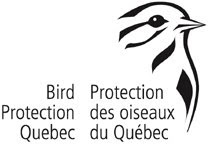The Role of Intelligence and Personality in Avian Responses to Environmental Challenges
Studies on Innovation and Learning in Wild Paridae (Chickadees and Tits)
A Presentation by Dr Julie Morand-Ferron
A Presentation by Dr Julie Morand-Ferron
Monday, December 7, 7:30 p.m.
Kensington Presbyterian Church
6225 Godfrey Ave, NDG
Animal populations can respond to environmental changes by changing their morphology, physiology or behaviour. Behavioural changes are especially important when responding to modern challenges resulting from human impact on the environment, such as climate change or urbanization, because behaviours can be adjusted quickly and fine-tuned to the current context with great precision. I will present different forms of behavioural plasticity exhibited by birds, with an accent on learning, memory and innovation, as well as associated personality traits. I will summarize some of our research on fitness consequences of the ability to solve novel problems in European tits of Oxford, UK, and on the effect of urbanization on the behaviour of Black-capped Chickadees in Ottawa. I will explain why behaviourally flexible birds such as members of the Paridae family are useful models to study the evolution of intelligence, and how this research can help understand why some species seem to thrive rather than decline in perturbed, rapidly changing environments.
Dr Julie Morand-Ferron is an assistant professor of Biology at the University of Ottawa, with an expertise in animal behaviour and ecology. The major goal of her research is to understand how cognitive processes, such as learning and decision-making, are shaped by natural selection. Her research is focused on avian foraging and social behaviour, using experiments in the field and in aviaries, as well as comparative methods. She uses an integrated approach, drawing from behavioural ecology, evolutionary ecology and experimental psychology.





No comments:
Post a Comment